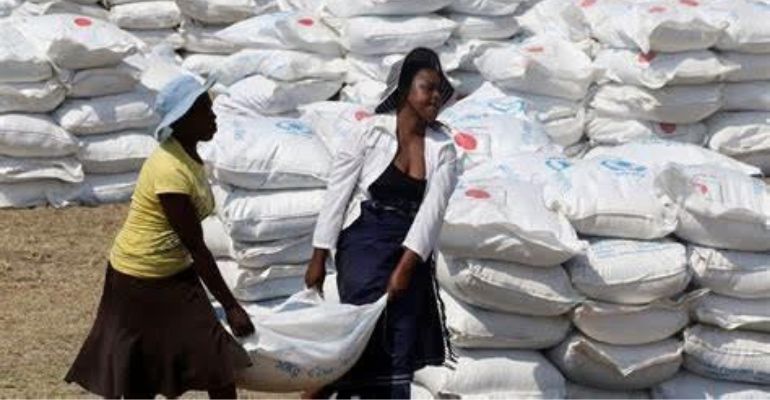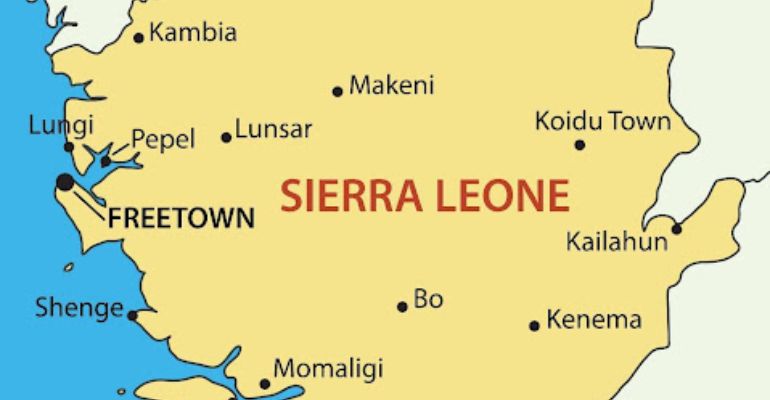Ghana’s economic downturn is marred by a record high food inflation of 122 %, fuel hikes, unsustainable debt levels to GDP (projected to hit 90.7% according to the IMF’s Fiscal Outlook Report), and a depreciating currency among major trading currencies such as the dollar.
The immediate effects are that standards of living are affected as the cost of living rises to the brim. Businesses are collapsing and investment interest is waning. Employment situations look very bleak and have manifested in many folds to the breakdown of homes.
All this while, the government has been committed to various initiatives and cash transfer programs in salvaging the economy, particularly curtailing the unemployment situation (hovering around 13.9%) and underemployment (above 50%). Despite these efforts, there is little to show on prosperity levels and the general well-being of the people. It touted itself for building an entrepreneurial nation, a rather fallacious claim that no government can boast of. Throughout Africa, before the advent of colonialism and later the modern state, the indigenous heritage of entrepreneurship, free village markets, free trade, and free enterprise existed in ways that encouraged productivity.
Suffice it to say that despite the mouth-watery slogans of unleashing entrepreneurs, the general outcome has been unintended consequences, misery, hardship and poverty. It can only be agreed this style of governance has led to unproductive and destructive entrepreneurship.
This should suggest to people that government programs in most cases are either ill-designed or ill-implemented or even a combination of the two.
Surprisingly, as the government fails there is an urge for it to intervene further in the economy. This is so true with how interventionism has often led to socialism. How well does the populace pay attention to history? The English Philosopher Aldous Huxley opines: “That men do not learn very much from the lessons of history is the most important of all the lessons of history.”
After independence, in Ghana, statist interventionism killed initiatives and stifled development. Price controls destroyed incentives to produce and ended up creating artificial shortages. By intervening in the market, activities such as price controls led to the gradual decline of the market. This is how the “alien” called black markets were birthed in post-colonial Ghana. This gave room to rent-seeking activities and dishonest ways of acquiring wealth through bribery and corruption.
As the economist, George Ayittey observed, “Officially, price controls were supposed to make commodities “affordable to the masses.” But only the ruling elites and their cronies could purchase commodities at government-controlled prices, which were later resold on the black market to reap a huge profit, a practice known as kalabule in Ghana.”
Read Also: Message to The West: Why You Should Not Forgive Africa of Its Debt Trespasses
This was very typical of the nationalist heroes such as Kwame Nkrumah and escalated to its peak during the Marxist regime of Flight-Lieutenant Jerry Rawlings when he denounced indigenous markets, for reasons of economic profiteers and saboteurs between 1981- 1983. His regime slapped stringent price controls on hundreds of goods. The productive entrepreneurial workforce was replaced with unproductive inspectors and Price Control Tribunals who meted out stiff penalties to all who violated this directive. Markets were burnt at the refusal of traders selling goods at government-dictated prices. Entrepreneurs were attacked. Others who criticized this statist decision were inhumanely treated. At Makola for example, scores of entrepreneurs who violated dictated price controls had to face the firing squad.
Such outcomes render Ludwig von Mises’s 1929 book, Critique of Interventionism more relevant. Mises argued that “Government intervention is not only superfluous and useless, but also harmful. It is superfluous because the interdependence of market phenomena narrowly circumscribes individual action and economic relations. It is useless because government regulation cannot achieve the objectives it is supposed to achieve. And it is harmful because it hampers man’s productive efforts where, from the consumers’ viewpoint, they are most useful and valuable. It lowers labor productivity and redirects production along lines of political command, rather than consumer satisfaction.”
The fundamental problem with price control is that it disregards the effective allocation of scarce resources.
In addition, is a deterioration in the quality of products and services. As Hugh Rockoff, professor of economics at Rutgers University noted, “The incentives to evade controls are ever-present, and the forms that evasion can take are limitless. The precise form depends on the nature of the good or service, the organization of the industry, the degree of government enforcement, and so on. One of the simplest forms of evasion is quality deterioration.”
The reverse is also true. The absence of government control leads to productivity and consumer satisfaction more morally and rationally. As Stephen Buckley, a foreign correspondent, noted in the Washington Post (May 25, 1998), after the removal of price controls and providing better incentives to farmers: Ghana doubled its corn production between 1986 and 1996.
As of October 2022, the Minister of Food and Agriculture revealed the Government had spent GHC 2.6 billion ($173,420,000) on its Flagship Programme, Planting for Food and Jobs. The initiative which was launched in 2017 aimed at improving agricultural production in the country. The policy is anchored by five pillars; the supply of improved seeds to farmers at subsidized prices, the supply of fertilizers to farmers at subsidized prices, free extension services to farmers, marketing opportunities for produce after harvest, and E-Agriculture.
Early this month, Food and Agriculture Minister, Dr. Owusu Afriyie Akoto, outlined the plan, which he believes will curtail the incessant increase of foodstuff prices in the markets, especially in urban areas as a result of high transportation cost to ensure urban consumers enjoy reasonable prices. Are the high transport cost and the general food inflation not caused by the government? Why not eliminate various taxes and levies on petroleum products? Why more controls? Why not reduce the cost of doing business which hinders the growth of the agricultural sector? Why not entrepreneurial freedom?
“One cannot legislate or choose outcomes directly”. When central planners take charge, fail to heed counsel backed by data instead choose headstrong leadership, with time, they become the problems themselves. Sadly, citizens (whether entrepreneurs or consumers) bear the brunt.
Citizens face a great choice; the acceptance of state control or stand up for self-control? You decide.












